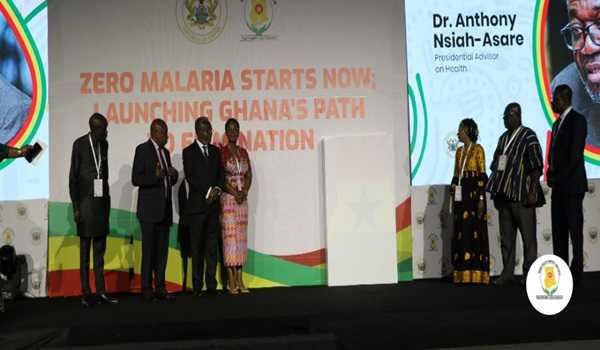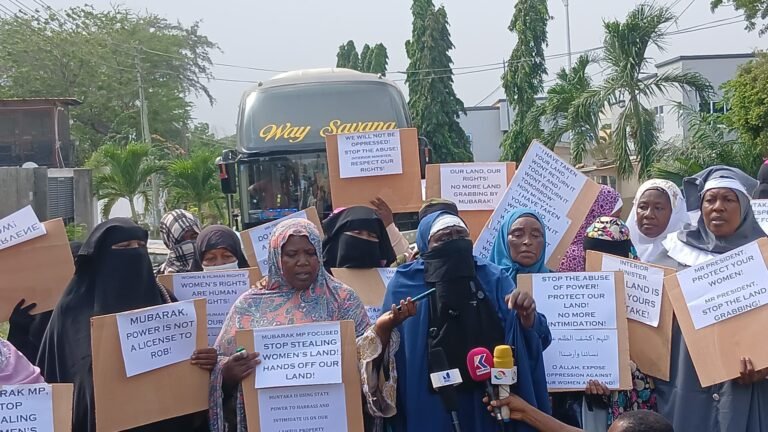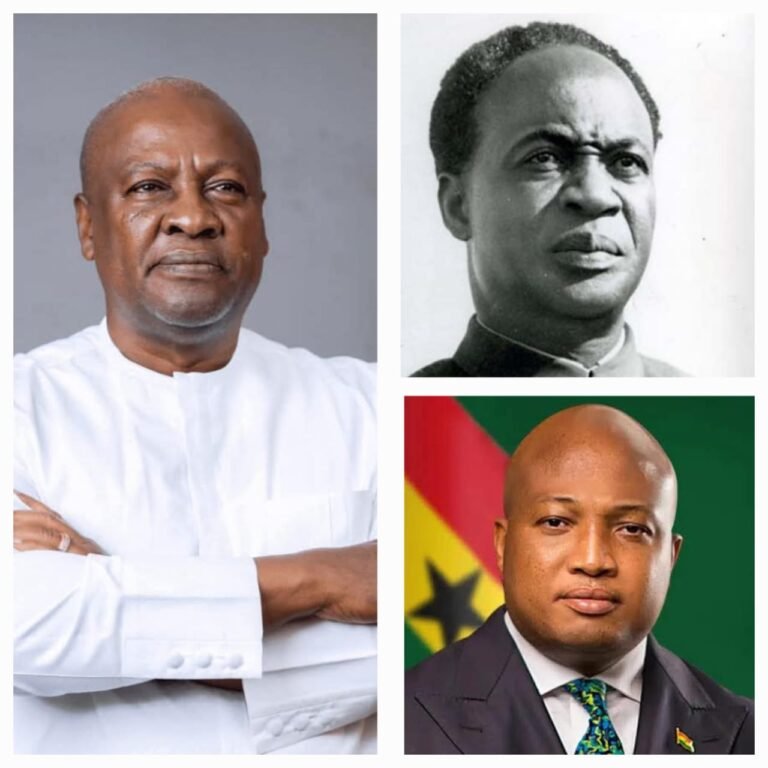
The government, through the Ministry of Health and Ghana Health Service (GHS) has launched the National Malaria Elimination Strategic Plan (NMESP) 2024 – 2028 to ensure the elimination of malaria and contribute towards the socio-economic development of the country.
The goals of the NMESP 2024 – 2028 are to reduce malaria mortality by 90% by the year 2028 (using 2022 as baseline), reduce malaria case incidence by 50% by 2028 (using 2022 as baseline) and eliminate malaria in 21 districts with very low malaria burden by 2028.
Dr Anthony Asare-Nsiah, Presidential Advisor on Health, who launched the NMESP 2024-2028 yesterday on behalf of President Nana Addo Dankwa Akufo-Addo at Kempinski Hotel, Accra, described the event as a historic one that will ensure that malaria elimination is possible in Ghana. It was under the theme “Zero Malaria Starts Now – Launching Ghana’s Path to Elimination”.
The President said that over the last years evidence had shown a drastic decline in the cases and death of malaria in Ghana. He indicated that the fight against malaria had started in earnest, looking into the future and required a national urgency and collective action.
“As we strive further to reduce cases, and eventually record zero morbidity and mortality across the country, it is time for all state institutions to identify and own their respective roles in achieving a malaria-free Ghana,” the President stated.
President Akufo-Addo emphasised the need to champion the agenda, by galvanizing all the needed support and resources for a malaria-free nation despite the nation’s numerous challenges.
Strategic objectives
The President stated that the strategic objectives of the NMESP 2024-2028 are to ensure 100% of the population had adequate knowledge, attitudes, practices and requisite skills for malaria elimination by 2028. He added that it will also ensure 100% of the population use one malaria preventive measure as well as ensure that 100% of suspected malaria cases are tested by 2028.
“NMESP 2024-2028 will ensure that 100% of confirmed cases are appropriately, effectively and completely treated by 2028. It will also strengthen malaria surveillance, and monitoring and evaluating systems by 2028. It will also ensure timely and adequate supply of quality-assured malaria commodities to all service delivery points by 2028,” he mentioned.
The President also indicated that it will strengthen and maintain capacity for governance and programme management to achieve programmatic objectives at all levels of the healthcare system towards malaria elimination by 2028. He further stated that it will improve mobilisation of resources and efficiently use available resources towards malaria elimination in Ghana.
The plan of the NMESP 2024-2028, he mentioned, is built on inclusiveness, sustainability, empowerment, and resilience, clearly defines the strategies necessary to accelerate progress from malaria control to elimination.
President Akufo-Addo noted that private industry investment was critical to realising the malaria elimination goal and to help build stronger health systems.
He, therefore, called for innovative mechanisms to mobilise resources domestically and internationally to augment existing resource streams, including donor contributions, to close the national funding gap.
Malaria fight
The Minister of Health, Kwaku Agyeman Manu, said the malaria fight is one of “our time’s most inspiring health stories, resulting from smart investents and strong partnerships that have resulted in dramatic progress against malaria in the last decades”.
He noted that through a dedicated workforce and effective partnership, the Ministry had reached millions of people with lifesaving interventions.
“Malaria-related deaths at all ages reduced from 3889 in 2008 to 155 by the end of 2022 (96% reduction). The under-five malaria case fatality rate also reduced from 1.7% in 2008 to 0.06% in 2022 (a 65% reduction).
“In 2008, we recorded 16 people dying from malaria out of 100,000 malaria admissions, while 1 person died out of every 100, 000 malaria admissions in 2022,” he stated.
He stressed that Ghana’s quest to achieve malaria elimination had been a long-term vision. “In 2000, we committed to the Abuja Declaration on Rolling Back Malaria in Africa and the Millennium Development Goals (MDGS), and finally, in 2006, we also committed to malaria elimination in Africa,” he said.
He commended all stakeholders and experts whose relentless efforts had brought the country this far.
Improved testing
For his part, Dr Patrick Kuma Aboagye, the Director-General of the GHS, said malaria testing rate had improved considerably from 38 per cent in 2012 to 97.8 per cent in 2022, malaria prevalence from 27.5 per cent in 2011 to 8.6 per cent in 2022.
He added that deaths due to malaria had also reduced markedly from 2,799 in 2012 to 151 in 2022. “This consistent reduction in morbidity and mortality assures us all about the effectiveness of our interventions and the hope of elimination with improved and sustained efforts,” he said.
Elimination of malaria, he said, required high political will and commitment, maintaining malaria high on the political agenda, country ownership as well as sustained efforts of national and inter-departments/agencies at all levels in planning, implementation and reporting.
Dr Aboagye revealed that the Government planned to constitute two committees – the Independent National Malaria Elimination Oversight Committee (NMEOC) and the National Malaria Elimination Technical Coordination Committee (NMETCC).
The NMEOC would oversee and provide strategic direction for the elimination of malaria in Ghana through a coordinated and comprehensive national approach, and the NMETCC would provide advisory and technical support to the NMEOC and aid in adapting the WHO guidelines and policies for the country towards the elimination agenda.
By Bright Philip Donkor





